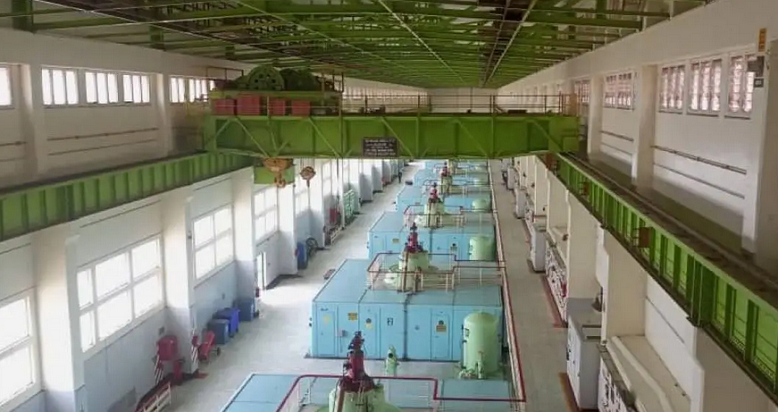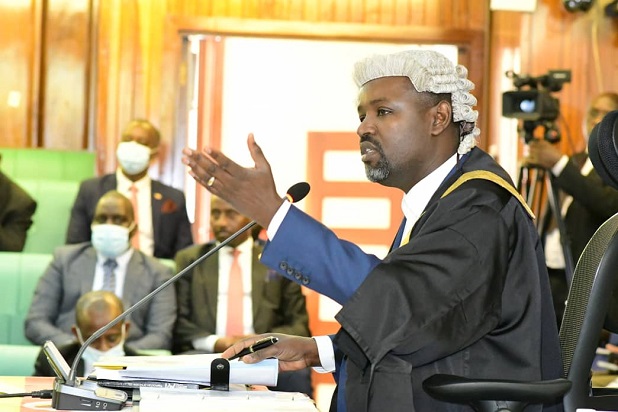The powerhouse at Nalubaale hydropower plant.
Eskom has handed over Nalubaale and Kira hydropower stations, officially ending their 20-year electricity generation concession in Uganda. Starting April 1, 2023, the plants, with a combined capacity of 380 megawatts, will be operated by Uganda Electricity Generation Company Limited, UEGCL. Eskom’s concession expires on March 31, 2023.
Eskom, a South African electricity public utility, has made a significant investment of US$52 million in a complex that includes the Nalubaale hydroelectric power plant. As part of this investment, two-thirds of the funds were allocated to Nalubaale, which is the older of the two plants within the complex and has been operating for 68 years.
This investment has been utilized to extend the operational life of the Nalubaale plant by an additional 30 years, helping to ensure a reliable and sustainable source of electricity for the country. Emmanuel Mutikanga, the Chief Executive Officer at UEGCL, who becomes the head of the two plants effective next week, said it would be easy to operate them since they are going to continue with the Eskom personnel, who include a few who worked with the defunct Uganda Electricity Board.
These, he says will be needed for their experience in operating equipment that might be becoming obsolete.
Mutikanga also urged Uganda Electricity Transmission Company Ltd, UETCL, to continue paying promptly for the power bought from the generation company promptly. This, according to him is one of the ways the state-owned companies will sustain operations.
The Chief Executive Officer at the Electricity Regulatory Authority, Ziria Tibalwa Waako said in their assessment as regulators, Eskom inherited the plants in a bad shape and has invested a lot to strengthen them and increase their lifespans.
The powerhouse civil structure was assessed to have another 30 years of remaining life, compared to 4 years in the baseline report. The major equipment at Nalubaale was given a remaining useful life of 10-40 years by Hatch Ltd, a Canadian engineering firm, where zero years had been assessed in the baseline report.
While admitting that the two power plants have been selling electricity at the lowest price (as low as 1 US cent or 100 Shillings), the decision not to renew the contract is government policy or repossessing its assets from private managers.
Okaasai Sidronius Opolot, the State Minister for Energy said the aim is to lower the cost of electricity because, according to him, private concessionaires add to the cost of operation, giving the example of Bujagaali, the most expensive. Okaasai says even Karuma will be as cheap as Nalubaale and Kiira and in the end, this will gradually bring down the cost to the consumer.
This means that the government’s plan is to ensure all its power plants are run by the state agency. Okaasai says there are other five plants that are due for government repossession but that they will all be given the chance to conclude their concessions.
The Managing Director of Eskom Uganda, Thozama Gangi, gave an account of the power company’s operations for the past 20 years, expressing satisfaction with her performance. In 2002, Eskom signed four deals including a Concession and Assignment Agreement with UEGCL, providing the framework that allows Eskom to operate and maintain the Nalubaale and Kiira Power stations.
The Power Purchase Agreement between Uganda Electricity Transmission Company Limited provides for the purchase of power by UETCL, while the support agreement with the government stipulates guidelines to ensure Eskom abides by the requirements set by the Directorate of Water Development. The Generation License Agreement was signed between Eskom Uganda Ltd and Electricity Regulatory Authority (ERA) allowing the company to generate and sell electricity.
Gangi said in spite of what she sees as successes, the company went through several challenges, including delays or inability by contractors to fully and adequately execute their obligations, the rise in the water levels last year, and the aging of the Nalubaale plant which they inherited.
She said despite leaving the power station at the end of this month, they will maintain their Bugolobi offices at least until the end of the year, giving chance to whoever might have a concern with them, to contact the office. The government has commissioned an audit into the operations of the company to determine how much the government may owe Eskom after the handover.
The Permanent Secretary in the Ministry of Energy and Mineral Development, Irene Batebe insisted there is no buyout determined yet and they are awaiting the outcome of the audit. This is mainly because the company was yet to recoup its investment by the time it handed over the assets back to the government. In a speech read for her by Principal Energy Officer at the ministry, Emmanuel Sunday Nsubuga, Batebe said they have built and tested the capacity to run the electricity generation plants, especially going by how the thermal plants are running.
-URN





